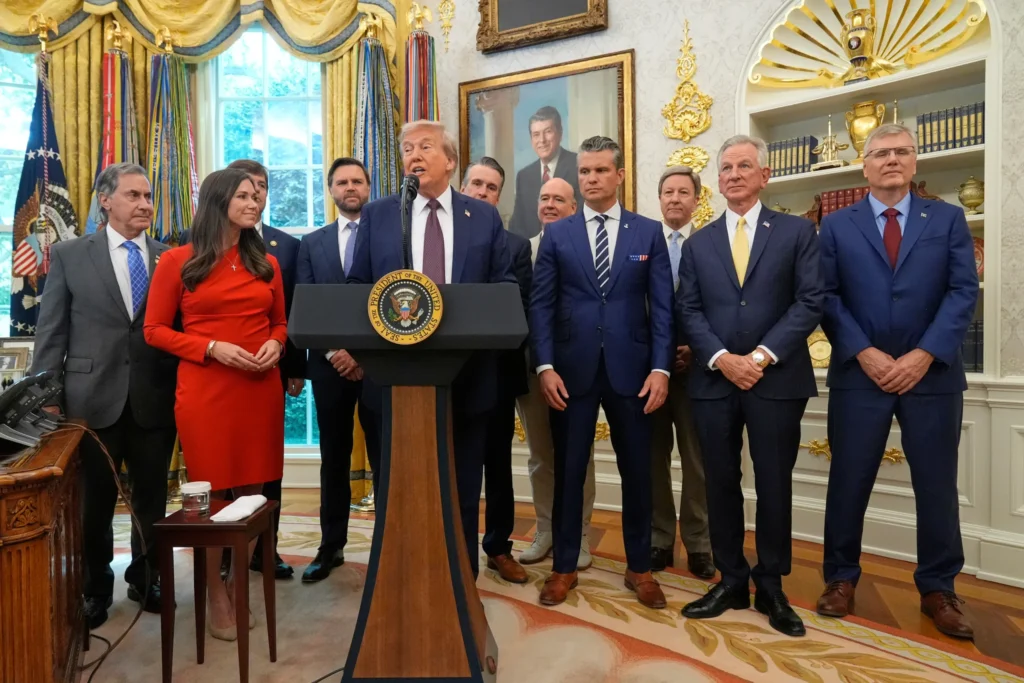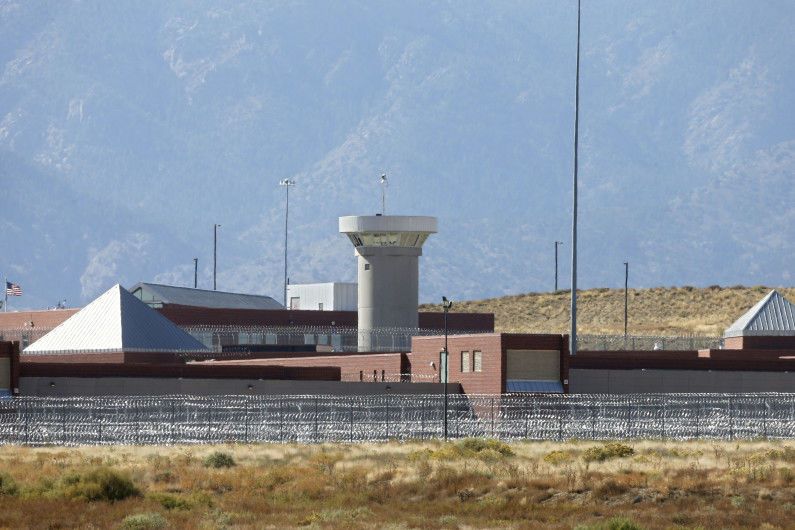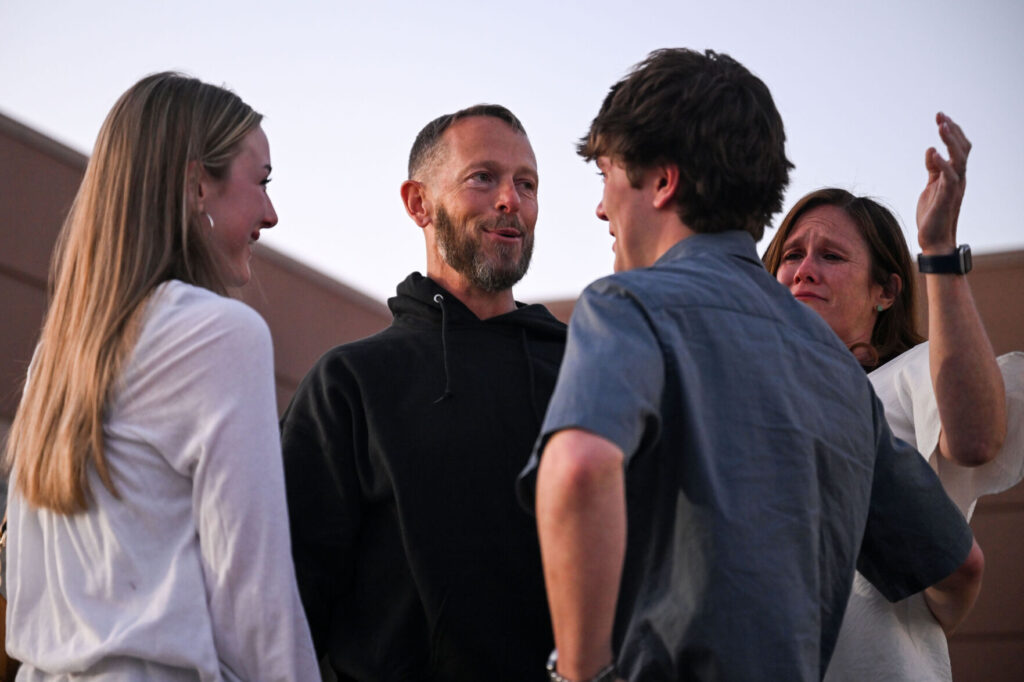OUT WEST ROUNDUP | Utah bans conversion therapy; NM bans guns during red-flag debate

UTAH
State bans conversion therapy for LGBTQ children
SALT LAKE CITY – The discredited practice of conversion therapy for LGBTQ children is now banned in Utah, making it the 19th state and one of the most conservative to prohibit it.
Supporters navigated a winding path to passage and some dissent remains, but barring it in Utah could give a boost to similar efforts in other right-leaning states, said Shannon Minter, legal director for the National Center for Lesbian Rights.
Virginia is considering a ban, and the issue could also come up in this year in Texas and Kentucky, he said. Colorado banned the practice last year.
The change in Utah comes after the state hammered out a regulatory rule that had the support of the influential Church of Jesus Christ of Latter-day Saints. Leaders had opposed a previous version because it didn’t have certain exceptions for clergy.
Conversion therapy is a practice used to try to change sexual orientation or gender identity. Many people who have been through it say it deepened feelings of depression and increased thoughts of suicide. The new rule bans licensed Utah therapists from subjecting LGBTQ minors to the practice that the American Psychological Association has said is not based in science and is harmful to mental health. The Utah Psychological Association also spoke in favor of the rule.
The ban has drawn push back. Opponents argued it would prevent parents from getting help for children with “unwanted” feelings and even keep therapists from taking on young clients for fear of accidentally breaking the rules if kids want to discuss feelings about sexuality.
Utah’s predominant faith, known widely as the Mormon church, opposes same-sex marriage and teaches that intimate same-sex relationships are a sin. But it also urges members to be kind and compassionate to LGBTQ people.
The faith got behind the conversion therapy ban after supporters included assurances that church leaders and members who are therapists would be allowed to provide spiritual counseling for parishioners or families.
NEW MEXICO
Gun debate prompts weapons ban at state Senate
SANTA FE – New Mexico’s state Senate was prohibiting firearms in its public gallery and nearby rooms for the first time on Jan. 28 as legislators began deliberations on red-flag legislation that would allow authorities to take guns away from people deemed dangerous to themselves or others.
Statehouse rules ordinarily allow the open carry of legally owned firearms without entranceway screening, along with permitted concealed weapons. Restrictions and screenings for weapons have been implemented in recent years in the state House chamber for the governor’s State of the State address when the top elected and appointed officials are clustered in one room.
Senate leaders announced that all weapons will be banned from the Senate gallery for an opening committee hearing on red-flag legislation, with exceptions for credentialed law enforcement officers. State police and security assistants aked that visitors do not bring long guns into the building, according to a written advisory from the Senate Democratic majority office.
Democrats including Gov. Michelle Lujan Grisham are pushing for legislation to allow law enforcement officials or family members to seek court orders to seize firearms temporarily from people deemed threatening.
A similar bill won House approval last year before stalling in the Senate. Advocates for so-called extreme risk protection orders have redoubled their efforts in response to the August 2019 mass shooting at a Walmart store in nearby El Paso, Texas, that killed 22 people. Police say the gunman specifically targeted Mexicans, shocking through New Mexico’s large Latino community.
OKLAHOMA
Zookeeper, former gov candidate sentenced in murder-for-hire plot
OKLAHOMA CITY – A former Oklahoma zookeeper and one-time candidate for governor was sentenced on Jan. 22 to 22 years in prison for his role in a murder-for-hire plot and violating federal wildlife laws.
A federal judge in Oklahoma City sentenced 56-year-old Joseph Allen Maldonado-Passage – who is also known as “Joe Exotic” – for trying to arrange the killing of a Florida animal sanctuary founder who criticized his treatment of animals. The woman, Carole Baskin, wasn’t harmed.
Maldonado -Passage, who maintained his innocence, also was sentenced for killing five tigers, selling tiger cubs and falsifying wildlife records. A jury convicted him last April.
He maintained his innocence in a Fcebook post and said his attorneys would appeal.
Maldonado-Passage’s attorneys had argued for lenience, noting he had no previous criminal convictions and that because of his poor health, a sentence within the advisory guidelines would amount to a life sentence. Prosecutors were satisfied with the sentence.
During last year’s trial, a jury heard evidence that Maldonado-Passage paid a man $3,000 to travel to Florida and kill Baskin, with a promise to pay more after she was dead. Maldonado-Passage was upset that Baskin, an outspoken critic of his, had won a million-dollar civil judgment against him.
After his initial attempt failed, prosecutors say Maldonado-Passage offered $10,000 to an undercover FBI agent to kill Baskin during a meeting that was recorded and played for the jury. In the recording, he told the agent, “Just like follow her into a mall parking lot and just cap her and drive off.”
Known for his blonde mullet and expletive-laden rants on YouTube, Maldonado-Passage appeared on John Oliver’s “Last Week Tonight” when he was a 2016 write-in candidate for president. The next year, he announced his candidacy as a Libertarian candidate for Oklahoma governor, ultimately finishing third in a three-way primary.
MONTANA
US land agency seeks to ID public parcels that lack access
BILLINGS – U.S. land managers say they will release by mid-March a priority list of federal lands that need but don’t have public access.
U.S. Bureau of Land Management officials said they want people to nominate lands where the public could legally hunt, fish or pursue other recreational purposes, except the lands have limited or no access.
The agency manages 383,000 square miles of land, primarily in western states.
The public access initiative is mandated under a sweeping conservation bill passed by Congress and signed into law by President Donald Trump last March. The law was named for Rep. John Dingell, the influential Michigan Democrat and longtime chairman of the House Energy and Commerce Committee who died last year.
Acting BLM Director William “Perry” Pendley said the agency welcomes “information from the public that will help us pinpoint barriers to access.”
The priority list will include parcels of at least one square mile. Once sites are identified, the agency would go back to Congress for money to pay for rights-of-way, easements or other means of access.
ARIZONA
Man cited for using fake skeleton to drive in HOV lane
PHOENIX – A 62-year-old man was cited in Arizona after trying to disguise a fake skeleton as a passenger just to use the HOV lane.
The Arizona Department of Public Safety says a trooper pulled over the man on Jan. 23 after noticing he had placed a fake skeleton in the passenger’s front seat.
The skeleton was sitting upright, wearing a hat and tied to the front seat. It was dressed in tattered clothing that appeared to be covered in artificial cobwebs, according to a photo provided by authorities.
Department spokesman Raul Garcia said troopers cite about 7,000 HOV lane violators every year. Last April, a man was pulled over after driving in the HOV lane with a mannequin wearing a sweatshirt, baseball cap and sunglasses.














